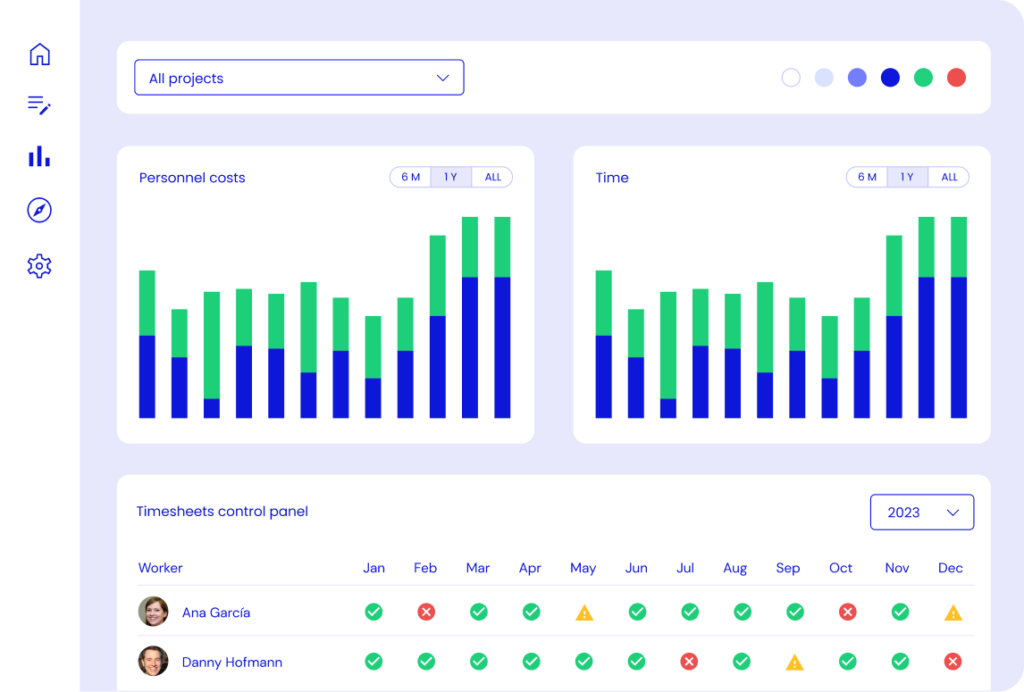Introduction
Europe is at the forefront of global Research and Development (R&D), continuously evolving to meet modern challenges. With support from initiatives like Horizon Europe, Europe is pushing boundaries in scientific innovation and technological advancements. This article delves into the emerging trends, approaches, and key areas that are shaping the future of R&D across the continent.
What are the Key Areas of Focus in European R&D?
1. Sustainable Development
Sustainability is a central theme in Europe’s R&D efforts. This involves innovations in renewable energy, sustainable agricultural practices, and the promotion of a circular economy to minimize waste and enhance recycling. Projects focused on reducing carbon footprints and promoting environmental sustainability are at the forefront, aiming to address climate change and resource depletion.
2. Digital Transformation
The drive towards digitalization encompasses a broad spectrum of technologies. 5G networks are enabling faster and more reliable connectivity, which is crucial for advancements in the Internet of Things (IoT). Artificial Intelligence (AI) is revolutionizing various sectors by enhancing efficiency and enabling new business models. These technologies are critical for smart cities, automated industries, and advanced healthcare systems.
3. Health and Biotechnology
Europe is heavily investing in biotechnology and healthcare innovations. The focus is on personalized medicine, where treatments are tailored to individual genetic profiles, and the development of advanced medical devices. Research in this area also includes finding new treatments for chronic diseases and improving overall public health through innovative technologies.
4. Blue Economy
The Blue Economy involves the sustainable use of ocean resources for economic growth, improved livelihoods, and jobs while preserving ocean health. This includes marine biotechnology, sustainable fisheries, and renewable ocean energy sources like wave and tidal energy. Europe is leveraging its extensive coastlines to lead in this area, integrating marine conservation with economic activities.
What Emerging Technologies are Changing the R&D Landscape?
1. Quantum Computing
Quantum computing promises to revolutionize problem-solving capabilities, providing significant advancements in fields requiring complex calculations such as cryptography, material science, and pharmaceuticals. By harnessing the principles of quantum mechanics, these computers can process information at unprecedented speeds and accuracy.
2. Biometrics and Cybersecurity
With the rise of digital identities, biometric technologies are becoming crucial for secure authentication processes in various applications, including banking, healthcare, and border control. Technologies such as fingerprint scanning, facial recognition, and iris scanning offer enhanced security measures that are difficult to forge or bypass.
3. Augmented and Virtual Reality (AR/VR)
AR and VR technologies are transforming training, maintenance, and customer experiences across multiple sectors. For example, they offer immersive training environments for medical procedures and complex machinery operations, enhancing learning outcomes and operational efficiency.
How is Europe Supporting R&D?
1. Horizon Europe
Horizon Europe is the EU’s key funding program for research and innovation with a budget of €95.5 billion. This program aims to tackle climate change, help achieve the UN’s Sustainable Development Goals, and boost the EU’s competitiveness and growth. By funding a wide range of research projects, Horizon Europe ensures that innovative ideas are transformed into viable solutions.
2. Collaborative Projects
Europe emphasizes collaborative R&D projects that involve multiple stakeholders, including universities, private companies, and public institutions. This collaborative approach fosters innovation through the sharing of expertise, resources, and facilities, driving forward complex research projects that a single entity might not be able to undertake alone.
What Challenges are Faced in European R&D?
1. Regulatory Hurdles
Navigating the complex regulatory landscape can be challenging, especially for cutting-edge technologies like gene editing, AI, and autonomous systems. Ensuring compliance with varying national and EU-wide regulations requires significant effort and coordination. Harmonizing these regulations while ensuring safety and ethical standards remains a critical task.
2. Funding Allocation
Securing adequate funding is a continuous challenge, with intense competition for grants and investments. Balancing the funding between fundamental research and applied innovation is crucial for sustainable progress. Initiatives like Horizon Europe aim to address this by providing substantial funding across diverse research areas, but the demand often exceeds the available resources.
3. Skill Shortages
There is a growing need for highly skilled professionals in emerging technology areas. Europe faces a challenge in training and retaining talent in fields like quantum computing, AI, and biotechnology. Investing in education and continuous professional development is essential to bridge this gap and ensure a workforce capable of driving future innovations.
Conclusion
Europe is leading the way in R&D with a strong focus on sustainability, digital transformation, health innovations, and emerging technologies like quantum computing and AR/VR. The collaborative nature of European R&D, supported by initiatives like Horizon Europe, ensures that innovation continues to thrive despite the challenges.
For companies and researchers looking to navigate the complexities of European R&D funding and regulations, Kronis.app provides essential tools and guidance to streamline your grant management process. Contact us today to learn how we can help you succeed in your R&D endeavors.

